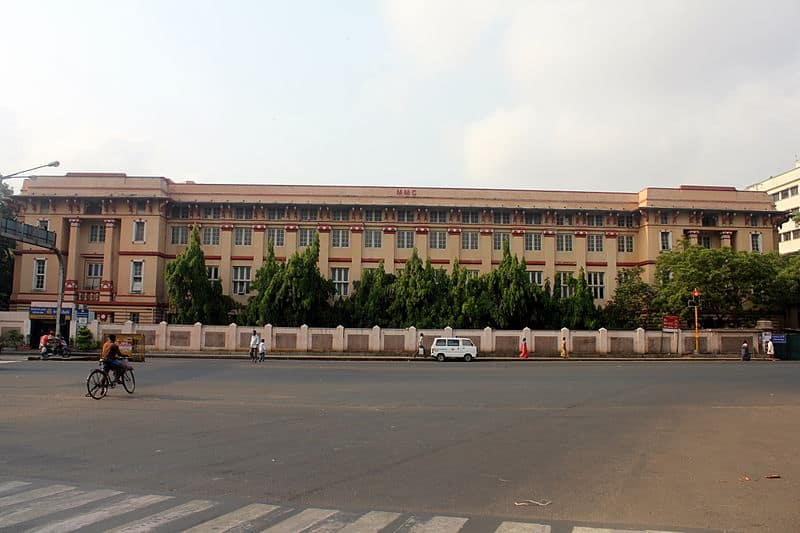Organ donation and body donation have been gaining momentum in India, particularly so in Tamil Nadu which has been a pioneer and leader in transplants. Despite the inroads made in the state, the awareness among the general public on organ donation needs to increase manifold in order to meet existing requirements.
Currently, India as a whole requires around 2,00,000 kidneys, 50,000 hearts and 50,000 livers annually for those requiring transplants. The current annual availability, however, is a meagre 10,000 kidneys and 1,000 livers. This is very disheartening. With a population of more than 130 crores, the organ donation rate needs to be higher than what prevails at present. Organ donation per million population in Spain is 49.6; Croatia 34.6; the USA 36.9, while it is just 0.52 in India.
Read more: Chennaiites, here’s your chance to save a life through stem cell donation
My father, Mr A.M.M.S. Xavier was a strong advocate for donating one’s organs, and even wrote a book titled ‘Let Life Live On’, providing guidelines and information on the same. It was an outcome of years of research and consultation with doctors and surgeons. In his book, he talks about eligibility criteria for a donation, who can donate and who can accept transplants. He also talks about what can be done to pledge one’s organs, what types of organ transplants are possible, and what is the time frame of such transplants.
True to the cause, after his death, his body was donated to Sri Ramachandra Medical College for research and educational purposes, thereby fulfilling his pledge. An updated version of the book ‘Let Life Live on’ is also in progress. (If you have any valuable insights please send them to Letlifeliveon2022@gmail.com)
Things to keep in mind for organ donation
For anyone interested in donating their organs it is important to note that not every patient is eligible to donate organs. Mostly, brain-dead patients or accident victims are eligible. In the case of an accident victim, if the individual is dead, but their blood and organs are still in good condition, and if they have pledged to donate their organs, or their families are willing to pledge, then the transplant can be done.
Other than these two categories, ‘Live Organ Donation’ is also an option in the case of certain organs such as kidneys, whereby a living person donates an organ or part of it to be transplanted for end-stage organ failure patients. For kidney transplants, family members are primarily considered for donation. If none are eligible, then state-maintained registries are looked into.
Donation of one’s entire body, post their death is also an option. This is usually done for research and education purposes.
One’s status as ‘brain-dead’ needs to be declared with thorough checks in place, so as to ensure the legality of organ donation.
“A panel of four doctors need to declare brain stem death twice in a time frame of six hours.
They are: (a) a doctor in charge of the hospital, (b) a doctor nominated from a panel of doctors appointed by the appropriate authority, (c) a doctor treating the patient and (d) a Neurologist or Neurosurgeon nominated from a panel appointed by the appropriate authority.”
Time is critical for all cases because any transplant must be done within six to eight hours. The body is also to be kept in specific conditions (often refrigerated) before it can be transported and transplanted.
In the case of an eye transplant, the following to-dos apply:
- If antibiotic eye drop is readily available, allow a few drops in both the eyes.
- Close the eyes softly and ensure that the eyes are closed properly.
- Switch off the fan and switch on the air conditioner if available.
- Raise the head of the deceased person by placing a pillow underneath.
- Place clean cotton or cotton cloth dipped in cold water over the closed eyelids.
- Keep ready the death certificate of the deceased person, if available.
It is also important to note who cannot be an organ donor. Patients with AIDS, Hepatitis B or C, Septicemia, acute Leukemia, Tetanus, Cholera, Meningitis, Encephalitis etc may not be able to donate their organs.
Read more: Considering organ donation? Here is all the information you need
Pledging one’s organs in advance
In order to donate one’s organs, one must first make a pledge. There are multiple parties or registries which then list and match organs to patients. In the case of donating one’s eyes, one can contact any hospital (especially eye hospitals) to make their pledge. My family has contacted Shankar Nethralaya in Chennai to pledge our eyes.
For donating our other organs, we took the help of an NGO called the Mohan Foundation, based in Chennai. They have been involved in coordinating organ donation for close to two decades. A form with basic information can be filled out through their website. Once that is done, you are given a confirmation of your pledge. You then print it out and have it as a laminated card in your wallet.
Family members have to be informed that the pledge has been made so that when the time comes, they know what to expect. The reason one keeps this in a wallet or on their person is that organ donation can only be done by accident victims or one who’s been dead. So in the event that something unfortunate were to take place, anybody can check your personal wallet or belongings, and see that you have made a pledge. It is important to remember that even though you may have pledged your organs, your family actually needs to sign documents to accept such a pledge before anything can be done. At least two of one’s family members have to sign off on these documents.
In the case of body donation, only the hospitals that are part of teaching institutions can actually accept these bodies. Within Tamil Nadu, there are a lot of government colleges that accept this; Madras Medical College, Kilpauk Medical College and Ramachandra Medical College are the only three in Chennai which accept full body pledges.

State-wide committee to regulate organ donation
Organ transplantation in Tamil Nadu is regulated by India’s Transplantation of Human Organs Act, 1994. Matching and listing are facilitated by the Transplant Authority of Tamil Nadu (TRANSTAN) and several NGOs.
TRANSTAN was set up on 12 December 2014, as a means to avoid the illegal trade of organs, especially with respect to the kidney. It is not easy to get a lot of renal and dialysis machines out there. As a result, there is a long waiting list for those waiting for kidneys. Kidney transplant patients have to register in the state-wide registry and wait for years to find donors who would match the patients. One cannot just go and get a third party to donate for them. They have to start looking for donors from within their families.
If a family member is not eligible, or not willing, then patients register and wait for a matching donor. Due to the fact that there is a long waiting list, people try to jump the queue. Many try to pay people for their organs as a result. Often, willingly or unwillingly people’s kidneys are transplanted. As a result, kidney transplants are the likely root of how the government started framing guidelines on the subject.
Again, as other organ transplantation methods in medicine developed other organs such as the liver, pancreas, heart, and lungs could be donated. The state government started to develop more registries for organs and patients. There is a committee, as part of TRANSTAN which matches donors with patients and grants approval for transplants. The state government has also developed ‘green corridors’ through which ambulances could travel, so as to quickly transport organs to patients in need.
Fears around organ donation
There is a lot of concern and fear around organ donations. Many wonder whether it is the right thing to do, or if it would be accepted by their communities and respective religious beliefs. To combat this the medical field has tried to accommodate these fears.
In the case of eye donation, many people think that if they were to donate their eyes, the whole eye is taken out. In reality, however, all that is used for the transplant is just the cornea. Once the cornea is removed, the eyes appear unchanged. Sometimes they may put a glass lid on top of the eye just to make the eye look normal. Many such misconceptions can be rectified by simple research to allay any fears.
In my father’s case, the two of us had been researching organ donation for years altogether. As a result, there was less fear around the process, and instead, an understanding that donation and transplantation are a means to contribute to those in life-threatening situations.
If people were to have more access to the practical and procedural information about donation, they would feel as passionately about the issue as we did.
